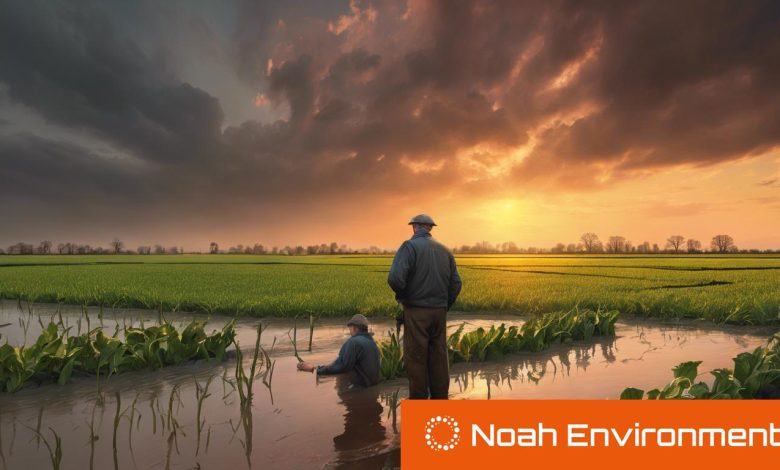UK farmers battle record-breaking February weather

UK farmers face unprecedented challenges due to the hottest and wettest February on record, impacting crop yields and raising concerns for future food security.
In February, UK farmers faced significant agricultural challenges due to record-breaking weather conditions. The Met Office reported that it was the hottest February ever recorded for England and Wales, as well as the wettest February for southern England since 1836. These conditions have resulted in delays in sowing and harvesting crops, and in some instances, complete resowing has been necessary.
Farmers like Andrew Blenkiron from Suffolk have described the situation as both “frustrating and costly,” with flooded fields impacting not only the planting of autumn crops but also the harvesting of winter staples such as sugar beet, and grazing areas for livestock. Likewise, farm manager Glenn Buckingham noted the additional costs faced by farms due to these adverse weather conditions.
These extreme weather patterns are seen as part of a broader trend towards warmer and wetter winters, attributed to climate change. According to David Eudall from the Agricultural and Horticulture Development Board, the farming sector is contending with several challenges including planting delays, market fluctuations, and the unpredictability of weather posing threats to crop yields and overall production.
This situation not only has immediate financial implications for farmers but also raises concerns about the long-term effects on harvests and soil health. The increasing frequency of such extreme weather events underscores the need for resilience and adaptation within the agricultural sector to ensure food security amidst ongoing climate challenges.








